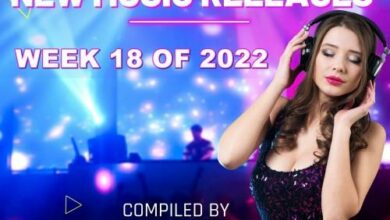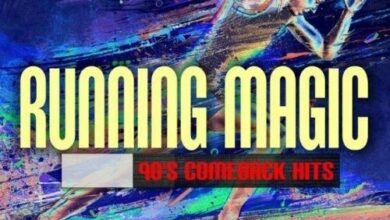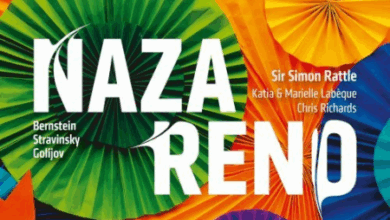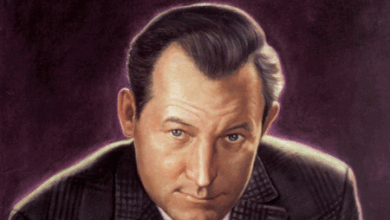Gidon Kremer — Great Recordings (2022)
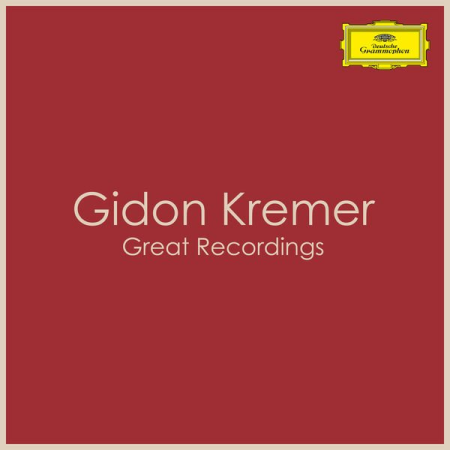
FLAC (tracks) / MP3 320 kbps | Classical | 24h 24 min | 5.8 / 3.2 GB
Gidon Kremer\’s technical brilliance, inward but passionate playing, and commitment to both new works and new interpretations of old works have made him one of the most respected violinists in the world today. Kremer was born on February 27, 1947, in Riga, Latvia, then part of the Soviet Union. His parents were both professional violinists (his father, a Jew, survived the Holocaust), and, as with so many virtuosi, Kremer\’s gift was apparent almost immediately after a violin was put in his hands. His grandfather, Georg Bruckner, concertmaster of the Riga Opera, is credited with having guided the development of Kremer\’s formidable talent. Kremer won the first prize of the Latvian Republic at age 16 and entered the Moscow Conservatory to study under the legendary violinist David Oistrakh, who eventually offered him a position as an assistant after he graduated. By that , however, Kremer had already won numerous violin competitions (most notably the 1970 Tchaikovsky Competition), and his star was rising as a soloist. Kremer had been denied permission to travel abroad, but was finally allowed to leave the country in 1975, and became a sensation in the West, when the German conductor Herbert von Karajan in 1976 proclaimed Kremer the greatest violinist in the world, after recording the Brahms violin concerto with him.
A remarkably versatile player, Kremer\’s repertoire encompasses the standard Baroque, Classical, and Romantic literature, as well as new works by composers such as Stockhausen, Henze, Nono, and Adams. Always a champion of the new and the rare, he has rhetorically asked: \»Why ride the same old warhorses to success\» He also enjoys thumbing his nose at conventional wisdom, regularly creating radical reinterpretations of the classics, as in his 1980 recording of the Beethoven Violin Concerto with somewhat bizarre cadenzas by Schnittke. He disdains virtuosity for virtuosity\’s sake but is nonetheless one of the most technically proficient violinists in the world. His playing tends toward a thoughtful austerity rather than the extroversion of a Jascha Heifetz, but when he is in top form, he is a mesmerizing performer. Kremer has kept apartments around the world but became particularly fond of the Austrian town of Lockenhaus. He founded the Lockenhaus Chamber Music Festival there in 1981, but ended the festival in 1990, deciding to stop before the task became too exhausting. In the late 1990s, he created the punningly named Kremerata Baltica with a group of young Latvian players; the group\’s recordings of Part and Astor Piazzolla placed them out in front of two of the hottest trends of the 20th century\’s end. His recordings with the group have won numerous international awards, including a Grammy in 2002. In the early 2010s, Kremer withdrew from several high-profile appearances, citing weariness with the machinery of musical celebrity. His recording career, however, has possibly become even more prolific, encompassing chamber music, recordings of mainstream repertory, and continued exploration with Kremerata Baltica, on the ECM label, of contemporary music from the Slavic countries, his native Baltic region, and the Russian sphere. He has devoted a pair of albums to Shostakovich\’s protege Mieczyslaw Weinberg; one was honored with a Grammy nomination in 2015, and a second, devoted to the composer\’s chamber symphonies, appeared in 2017. He was once again nominated for a Grammy in 2019 for a recording of Weinberg\’s Symphonies Nos. 2 & 21 under Mirga Grazinyte-Tyla. Kremer\’s more mainstream recordings, such as a 2012 album devoted to Vivaldi\’s Four Seasons, have appeared on Deutsche Grammophon and Decca.
01. II. Largo
02. Prologue
03. 3. Scherzo. Allegro molto
04. Kreisler: Schon Rosmarin
05. I. Allegro
06. II. Largo
07. III. Allegro (Danza pastorale)
08. I. Allegro non molto — Allegro
09. 2. Adagio
10. 3. Rondeau. Allegro (Lead-in: Gidon Kremer)
11. Beethoven: Violin Romance No.1 In G Major, Op.40
12. II. Humoreske (Lebhaft)
13. III. Lebhaft
14. IV. Rondo alla Zingarese
15. 1. Allegro moderato
16. 2. Andante
17. 3. Rondeau (Allegro)
18. II. Allegretto
19. 1. Allegro con brio
20. 2. Tema con variazioni. Andante con moto
21. 3. Rondo. Allegro
22. 1. Allegro vivace
23. 2. Andante piu tosto allegretto
24. 3. Allegro piacevole
25. 1. Allegro con spirito
26. 2. Adagio con molt\’ espressione
27. 3. Rondo. Allegro molto
28. I. Adagio
29. II. Allegro ma non tanto
30. III. Andante
31. IV. Allegro moderato
32. I. Adagio
33. II. Allegro
34. III. Andante
35. IV. Allegro
36. I. Vivace
37. II. Adagio
38. III. Allegro
39. I. Mit leidenschaftlichem Ausdruck
40. II. Allegretto
41. II. Sehr lebhaft
42. III. Leise, einfach
43. IV. Bewegt
44. 1. Presto
45. 2. Andante scherzoso, piu allegretto
46. 3. Allegro molto
47. I. Allegro
48. 2. Adagio molto espressivo
49. 4. Rondo. Allegro ma non troppo
50. Allegro
51. 1. Con moto
52. 2. Ballada. Con moto
53. 4. Adagio
54. 3. Allegretto
55. Theme. Modere
56. Variation 1. Modere
57. Variation 2. Un peu moins modere
58. II. Scherzo
59. II. Adagio
60. Variation 3. Modere, avec eclat
61. Variation 4. Vif et passionne
62. Variation 5. Tres modere
63. Song No. 2
64. Song No. 3
65. Part: Estonian Lullaby
66. II. Adagio — Presto — Adagio
67. III. Presto (Tempo impetuoso d\’estate)
68. I. Nocturne
69. III. Traum von einer Puppe
70. I. Praeludium and Aria
71. II. Toccata
72. III. Poem
73. I. Moderato
74. III. Moderato
75. II. Allegro molto
76. III. Largo
77. IV. Presto
78. V. Andantino
79. Rachmaninoff: Preghiera (Arr. by Fritz Kreisler from Piano Concerto No. 2 in C Minor, Op. 18, 2nd Movement)
80. III. Allegro risoluto
81. Movement I
82. Song No. 1
83. Movement III
84. Movement IV
85. Umebayashi: Yumeji\’s Theme (From \»In The Mood For Love\»)
86. Schubert: Polonaise In B Flat, D.580
87. Allegro con strepito
88. 1. Allegro moderato
89. 3. Rondeaux. Allegretto
90. 1. Allegro aperto
91. 2. Adagio
92. 3. Rondeau. Tempo di Menuetto
93. 3. Presto
94. 1. Allegro con brio
95. 2. Largo
96. 3. Rondo (Allegro scherzando)
97. 1. Allegro con brio — Cadenza: Ludwig van Beethoven
98. IV. Finale
99. I. Allegro moderato
100. II. Adagio
101. III. Allegretto
102. I. Largo
103. VI. Lento
104. I. Moderato
105. II. Quasi variazione
106. Rachmaninoff: Trio elegiaque No. 1 in G Minor
107. Movement II
108. Kancheli: Ex Contrario
109. I. Ziemlich langsam — Lebhaft
110. Allegro appassionato
111. Adagio
112. 1. Allegro maestoso
113. 2. Andante
114. 2. Adagio
115. 3. Rondo (Molto allegro)
116. Beethoven: Rondo for Piano and Orchestra in B Flat Major, WoO. 6
117. I. Allegro con brio
118. II. Largo
119. III. Rondo (Allegro)
120. I. Allegro moderato
121. II. Andante con moto
122. III. Rondo (Vivace)
123. Beethoven: Romance Cantabile for Piano, Flute and Bassoon accompanied by Two Oboes and Strings in E Minor, Hess 13
124. 1. Allegro
125. 2. Adagio un poco mosso
126. 3. Rondo (Allegro)
127. I. Allegro
128. II. Largo (Attacca)
129. III. Rondo alla Polacca
130. I. Allegro ma non troppo
131. II. Larghetto
132. III. Rondo. Allegro
133. Allegro con brio (Compl. Wilfried Fischer)
134. 1. Allegretto ma non troppo
135. 2. Larghetto — attacca
136. 3. Rondo. Allegro
137. 1. Allegro moderato
138. 2. Larghetto
139. 3. Rondo (Allegretto)
140. I. Allegro non troppo — Cadenza: Max Reger (Live)
141. II. Adagio (Live)
142. III. Allegro giocoso, ma non troppo vivace — Poco piu presto (Live)
143. 1. = 104 — = 120
144. 5. Rondo: Agitato
145. 6. Epilogo
146. 1. Allegro con brio
147. 2. Adagio cantabile
148. 3. Scherzo (Allegro)
149. 4. Finale (Allegro)
150. 3. Allegro vivace
151. Paganiniana (Variations) for Violin solo
152. 2. Improvisation (Andante cantabile)
153. Desyatnikov: \»Wie der alte Leiermann…\»
154. Piazzolla: Fuga y misterio — Arranged by Andrei Pushkarev
155. Piazzolla: Oblivion
156. I. Andante
157. III. Largo — Andante — Largo
158. 1. Largo (attacca:)
159. 2. Allegro molto (attacca:)
160. 3. Allegretto (attacca:)
161. 4. Largo (attacca:)
162. 5. Largo
163. 1. Andante
164. 2. Allegretto furioso
165. 3. Adagio (attacca:)
166. 4. Allegretto — Andante
167. 1. Allegretto
168. 2. Andantino
169. 3. Allegretto — attacca
170. 4. Allegretto
171. 1. Allegretto
172. 2. Moderato con moto
173. 3. Allegro non troppo
174. 4. Adagio — attacca
175. 5. Moderato
176. Andante
177. 1. Allegretto
178. 2. Adagio — Largo — Adagio — Largo (attacca:)
179. 3. Allegretto
180. 4. Adagio — Allegretto — Adagio — Allegretto
181. 1. Allegro (Cadenza: Robert Levin)
182. II. Adagio (Cadenza: Robert Levin)
183. 1. Allegro (Cadenza By Robert Levin)
184. 2. Andante cantabile (Cadenza By Robert Levin)
185. 3. Rondeau (Andante grazioso — Allegro ma non troppo) (Cadenza By Robert Levin)
186. I. Allegro (Ballo, e canto de\’ villanelli)
187. II. Adagio molto (Ubriachi donti)
188. III. Allegro (La caccia)
189. I. Allegro non molto
190. III. Allegro
191. 1. Allegro
192. 2. Andante
193. 3. Finale. Allegro
194. 1. Allegro
195. 2. Andante
196. 3. Allegro con spirito



